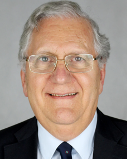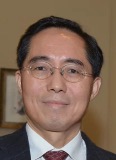The Orthomolecular Medicine Hall of Fame was established in 2004 by the International Society for Orthomolecular Medicine to honour the pioneers and leaders in Orthomolecular Medicine. Today, there are ninety people in the Hall of Fame – physicians, researchers, professors and advocates – each having made a significant contribution to the foundation and growth of Orthomolecular Medicine around the world. These remarkable people make up the rich history and broad range of interest and experience in Orthomolecular Medicine.
Every year, members of the Hall of Fame nominate others whom they consider worthy of inclusion. The submissions are reviewed and voted on by Hall of Fame members; those with the most votes are chosen to be inducted at the following year’s ceremony, which takes place at the Annual Orthomolecular Medicine Today Conference.
CONGRATULATIONS TO THE 2022 HALL OF FAME INDUCTEES
 A. David Smith, MA, D Phil
A. David Smith, MA, D Phil
b. 1938
David Smith has spent his entire academic career at the University of Oxford, beginning as a student of biochemistry in 1963 and years later ascending to Chair and Head of Pharmacology at Oxford and Fellow of Lady Margaret Hall from 1984-2005. Dr. Smith was founding Chief Editor for the International Brain Research Organization’s journal Neuroscience from 1976 to 2001, and was deservedly awarded the Gaddum prize medal of the British Pharmacological Society in 1979.
Smith co-founded the Oxford Project to Investigate Memory and Aging (OPTIMA), which has pioneered the study of the prevention of cognitive decline and brain atrophy by identifying modifiable risk factors.
In 1998, Smith Group discovered that elevated plasma homocysteine and low-normal concentrations of B vitamins (folate, vitamin B12, and vitamin B6) are critical risk factors for the development of pathologically-confirmed Alzheimer’s and vascular dementia. This novel discovery led to the development of VITACOG, a two-year randomized, double-blind, placebo-controlled trial designed to determine if lowering plasma homocysteine concentrations through the administration of high doses of supplementary B vitamins (folic acid, vitamins B6 and B12) over two years would slow the rate of brain atrophy of in elderly subjects with mild cognitive impairment, a predictor of dementia. The results were striking; it was found that the accelerated rate of brain atrophy in elderly with mild cognitive impairment can be significant reduced by over 53% by treatment with homocysteine-lowering B vitamins.
In more recent years, Smith and colleagues research concerns the association between plasma cysteine and obesity. In 2008 they found that high plasma cysteine was associated with an increased fat mass in a study on 5,000 Norwegian people, which has no been confirmed in other cohorts. They are now testing whether specific diets or treatments that lower cysteine in animals will reduce fat mass with the aim to carry human clinical trials in the future.
Smith is a true visionary and scholar within the field of orthomolecular medicine, earning him a lasting position in the Orthomolecular Medicine Hall of Fame.
 Richard Cheng, MD, PhD
Richard Cheng, MD, PhD
b. 1959
Richard Cheng, MD, PhD, is president of Cheng Integrative Health Center in Columbia, SC, USA and Cheng Health Consulting, Shanghai, China.
He received his education and training from the Shanghai Medical University (MD and internal medicine); the University of Arkansas for Medical Sciences (Ph.D. in biochemistry and molecular biology on cancer genetics, internal medicine and pathology/laboratory medicine); the National Cancer Institute, NIH (Clinical Fellowship in Hematology/Pathology). He is a Fellow and board-certified in anti-aging and integrative cancer therapy by the American Academy of Anti-Aging & Regenerative Medicine.
After serving as a senior scientist at a Boston biotech company Richard went on to serve the US Army as a medical officer in the rank of a Major. After vast experiences in basic and clinical medicine, and frustrated that the current medicine is not able to prevent or reverse any chronic disease, he finally realized that it is mostly the lifestyle (including diet) and nutrition, not high technology that will help us to achieve good health, to prevent diseases and to live a long, happy and healthy life.
It is the vast amount of research on the effects of vitamin C, mostly from the doctors and scientists in orthomolecular medicine that really made him to realize the fundamental flaws of the current medicine. Richard was really surprised by the availability of abundant data on vitamins, nutrients, lifestyle and yet there is little mentioning in the medical system and the media. What the healthcare professionals and the consumers hear mostly is the expensive drugs and procedures.
For the past 20 years or so, Richard has been turning away from a drug-based approach of disease management to integrative management of health and diseases to include lifestyle, nutrition, anti-nutrients (detox), hormonal balance and cell therapy. Richard has been able to reverse many diseases considered incurable by the current medicine from cardiovascular diseases, diabetes and other metabolic diseases to various autoimmune diseases and even cancer.
He translated several orthomolecular medicine books into Chinese and help founded lifestyle medical societies in China. During the Covid-19 pandemic, Richard has been promoting orthomolecular medicine approach especially high dose vitamin C in the prevention and treatment of Covid-19 in China and worldwide through academic publications, lectures and media interviews.


